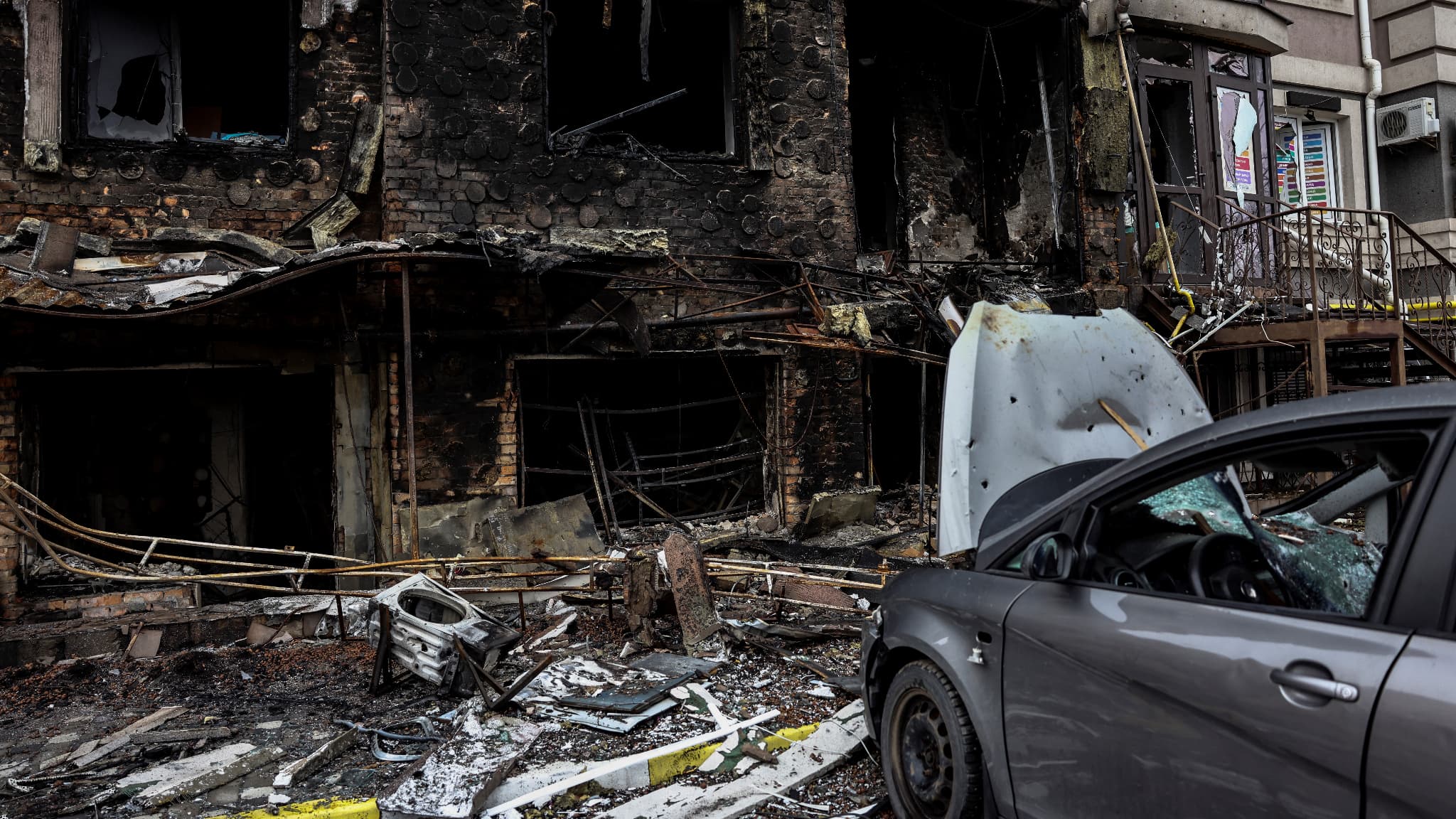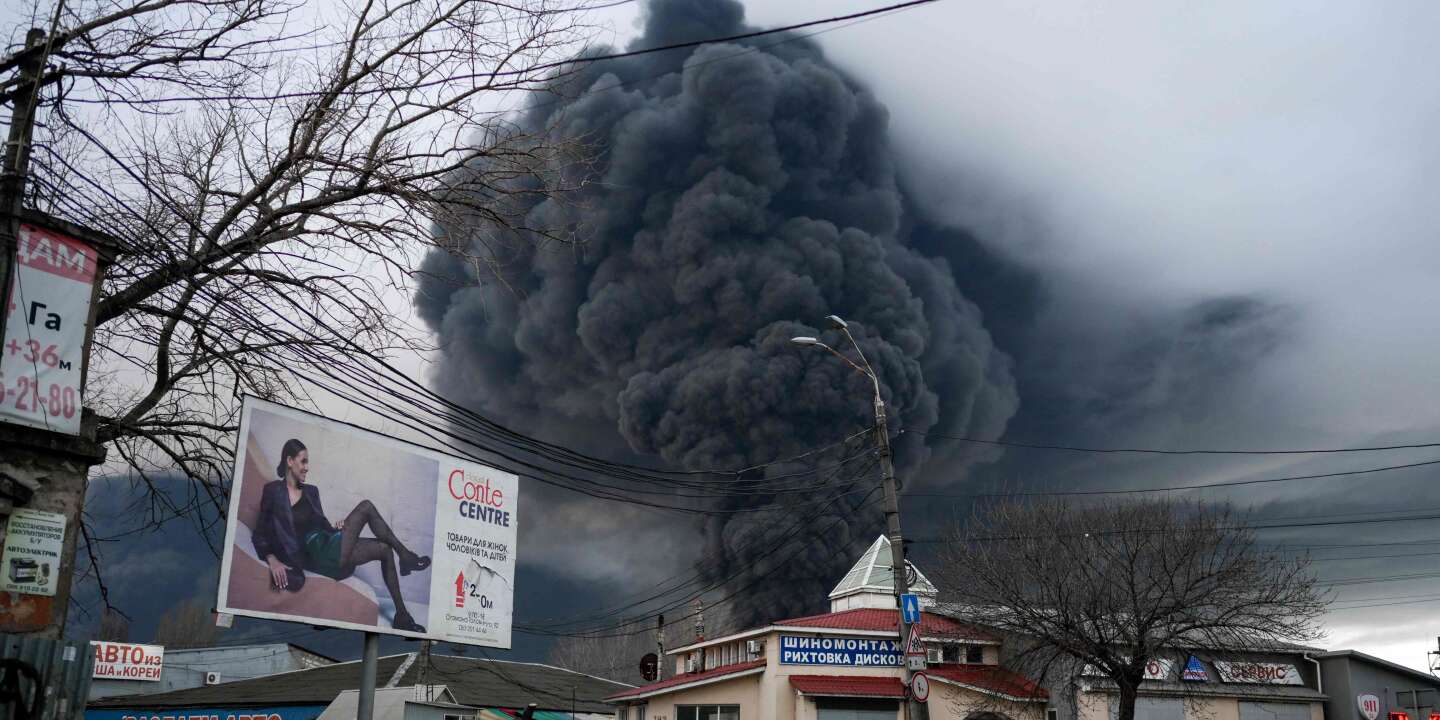
According to the mayor of Boutcha, nearly 300 people had to be buried in “mass graves” due to a lack of safe access to the cemeteries. Corpses litter the streets of the city.
“Freed”, but deeply disfigured by the fighting. While Ukrainian authorities witnessed a “rapid withdrawal” of Russian troops in the north of the country on Saturday, the mayor of Boutcha gave a sad assessment of the situation in this city, about 30 kilometers north of Kiev.
In all, 280 people had to be buried in “mass graves” because they couldn’t do so in the city’s cemeteries without exposing themselves to Russian army fire, he explained.
“In some streets we see 15 to 20 corpses on the ground”, but “I can’t say how many are left in the courtyards, behind the stockades,” continued the mayor, Anatoly Fedorouk.
Corpses litter the streets
Between the carcasses of cars and the gutted houses, human remains still lie on the sidewalks of certain streets, even after the Russians left. “All these people were shot, killed, with a bullet in the back of the head,” probably a few days earlier, the city’s mayor said.
Civilians killed as they returned home, for some on foot, by bicycle or even by car, like this landscape painter whose death another resident mourns:
“He was a resident. An honest, peaceful person, who liked to work. And they simply, shamelessly and knowingly ran him over with a Russian armored vehicle.”
Another striking sight: this man with his hands tied behind his back, also shot in the head by Russian troops. “These people were walking around and shooting them for no reason,” said a passerby.
Human Rights Watch denounces ‘war crimes’
In response to these images, the non-governmental organization Human Rights Wtach denounced this Sunday morning “war crimes” and “violations of the law of war”.
“The cases we have documented represent unspeakable and deliberate cruelty and violence against Ukrainian civilians,” said Hugh Williamson, Human Rights Watch’s Europe and Central Asia director, calling for an investigation into these crimes.
“Rapes, murders and other acts of violence against persons detained by Russian troops should be investigated as war crimes,” he continued.
According to statements by several residents to Agence France-Presse (AFP), more than 70 Russian armored vehicles left the city at the beginning of the week, in the opposite direction to Kiev. The bombing stopped on Thursday.



